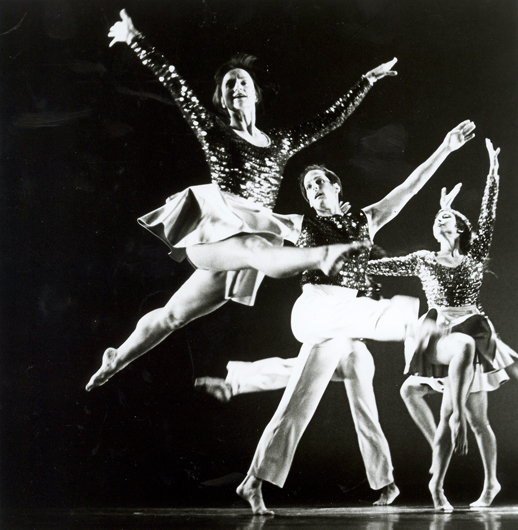'Now Dance'
Fehlandt celebrates with a signature solo
When Tina Fehlandt e-mailed renowned choreographer Mark Morris, with whom she had danced for 20 years, about a piece of his she could perform at Princeton's bi-annual faculty dance concert, he suggested Peccadillos, a signature solo set to short piano pieces for children composed by Erik Satie. When Fehlandt, a lecturer in theater and dance, performs it Nov. 21-22, at the Patricia and Ward Hagan '48 Dance Studio at 185 Nassau St., it will mark the first time a woman has ever performed the work. It has been danced only by Mikhail Baryshnikov, Morris, and current Mark Morris Dance Group member Joe Bowie. Fehlandt, who retired from dancing with the Mark Morris Dance Group in January 2000 and turned 50 earlier this year, says, "It seemed appropriate to do something special to commemorate such a momentous occasion!"
Peccadillos, which originally premiered at the Jacob's Pillow Dance Festival in 2000, is "a 10-minute solo with nine different sections, each with its own distinct mood," explains Fehlandt. She likens it to a "young child playing make-believe. ... The dancer is in her [or] his own world of make-believe." Critic Tobi Tobias described it as "a charming little joke and turns out to be a tragedy in miniature."
Fehlandt, who is teaching Beginning/Intermediate Modern Dance Technique and staged a Mark Morris work at last year's spring dance Festival, is among several faculty members and guests performing or having their choreographed works performed at the concert, Now Dance. Elizabeth Schwall ’09 will dance Cloud Song, choreographed by Ze'eva Cohen; Rebecca Lazier will present Terminal, performed by her New York dance company Terrain; and Dyane Harvey will perform The Corner, a work-in-progress based on the life of Muhammad Ali. Now Dance begins at 8 p.m. Nov. 21 and 22. By Katherine Federici Greenwood
Above, Tina Fehlandt danced front and center with other Mark Morris Dance Company dancers. She will perform Peccadillos at the faculty concert, Now Dance. (Photo by Tom Brazil)














No responses yet